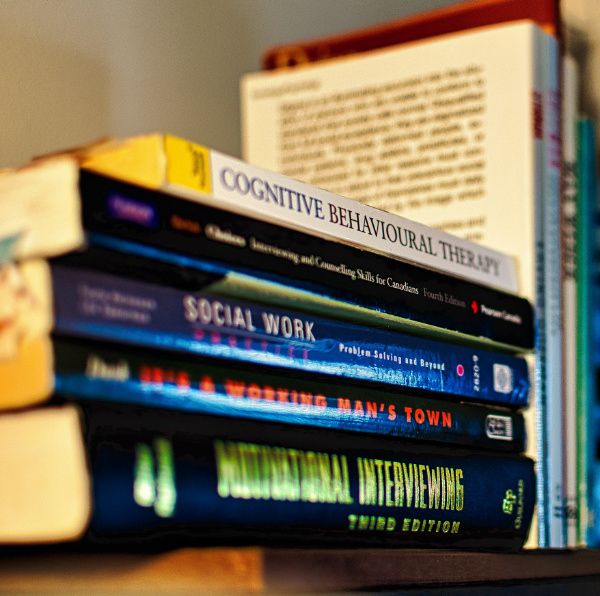Anxiety and Depression
Feelings of anxiety and depression often result from trauma from recent events or can come from memories of events long past that may even have escaped conscious memory. Significant loss or discord in relationships can also result in feeling out of control or floating in limbo without motivation or direction or simply feeling a deep sadness or fear of what the future might hold. Sometimes there may be a biological component that may need to be addressed.

Talking about past experiences and relationships along with a plan for how to move forward and gain a sense of what is in your control and what is not can be very helpful in feeling better and finding ways to choose a positive path. Other techniques such as Emotional Free Therapy (EFT) are very effective in using tapping certain neurological and circulation pathways on one’s own hands, face, and upper body by helping to focus the mind and body together.
Working Through Trauma

Often to survive a traumatic experience or set of experiences, we want to “wall off” the painful feelings and memories to help numb the discomfort. When this is done, our brains become emotionally detached from our bodies and we can even have trouble feeling much of anything. Relaxation, deep breathing, visualization, physical exercise, art, music, dancing, and yoga stretching are some of the techniques that can be very beneficial to bring us back to the moment and be in touch with what we feel and who we are.
Parent Coaching
Of course, kids don’t come with a handbook so most of us try to parent our children the way we have been parented, even if our own parents had issues of abuse, substance abuse, or even abandonment that had painful impacts on our childhood. Even with the best knowledge and intentions, being a parent can be way tougher than you may have imagined.
With experience as a parent herself as well as years of working with kids and their families on tough behaviors as a school counselor, she knows the struggles of dealing with family problems and enjoys helping parents find better ways to cope with their kids’ behavioral issues. Sylvia can help figure out what is “normal” and what may need to be addressed in a different way.

BrainSpotting (BSP)
Dr. David Grand began developing Brainspotting as an outgrowth of his use of EMDR (Eye Movement Desensitization and Reprocessing) to treat emotional trauma in the 1990s. The motto of Brainspotting is “Where you look affects how you feel”. Our memories are embedded in our brains in certain areas and Brainspotting allows the therapist and client to find those areas to reprocess the trauma and let it out so the intensity of the trauma no longer maintains its power and control over a person’s feelings and/or functioning.

Sylvia is trained in the use of Brainspotting and understands that often people who have experienced trauma not only store the experience in their brain but the brain stores it in the physical body as pain or unexplained illness. In using Brainspotting, many people have been able to relieve emotional and physical pain that had dogged them for years.
Emotional Regulation

Many children and adults have experienced trauma and/or have never been taught or allowed to learn how to regulate their emotions and actions. The concepts of the ZONES of Regulation are very useful in helping people of all ages better recognize their feelings (related to “energy levels” and colors) to begin to be able to control their actions. Being able to recognize high-energy feelings without self-judgment is the first step in being able to consciously make decisions to choose more positive actions and slow down impulses.
After learning how to recognize one’s feelings or energy level, it is useful to learn to recognize the Size of the Problem so that appropriate reactions can be chosen. Many young people who have learned to “handle” their world with extreme tantrums and explosions of anger have been able to reduce their tantrums through the use of the ZONES concepts.
Cognitive Behavior Therapy (CBT)
Cognitive Behavior Therapy has become recognized as one of the most effective therapeutic approaches. It works to engage the mind so that better life choices are possible. Learning about the Thoughts/Feelings/Actions continuum and how to interrupt a negative cycle with positive self-talk is very powerful when working through anxiety, anger, and other feelings.

Role-playing is another helpful technique that helps clients rehearse what they can do when faced with situations that they know cause them difficulty.
School Success

Academic, social, or behavioral problems at school can become patterns that are difficult to change. Having been a teacher and then a school counselor for years in public schools I understand the school environment and can help parents and students to develop strategies to be successful at school. I am happy to work with administrators, teachers, and other school personnel to develop plans for positive change.
Animal Assisted Therapy
Growing up as an only child with dogs and then later horses, Sylvia knew early in her life how a bond with an animal could be helpful and enriching. Upon becoming a teacher and counselor it was natural to think about how animals, especially dogs, could be used to help people therapeutically and in the 1980s before it became popular, Sylvia began learning about and training her dogs to interact with people to help with loneliness, emotional trauma, and other issues.

In 1994 she began using her registered therapy dogs in the Wichita Public Schools as a school counselor, helping countless children and adults move through emotional issues and to help teach positive social and emotional skills. She was key in developing and writing the Therapy Dog Policy for USD 259, developing protocols for the safe and professional use of therapy dogs in the school environment. She taught workshops at Friends University from 2000-2015, teaching other professionals best practices in the safe and ethical use of dogs in a professional environment. In 2008 she worked under Rise VanFleet, Ph.D., an internationally recognized expert in the field of Animal Assisted Play Therapy, to increase her knowledge and skill in safely and effectively using dogs as a therapeutic tool. In 2014 Sylvia became an evaluator for the Alliance of Therapy Dogs. Sylvia and her dogs are certified through the Alliance of Therapy Dogs and are also insured as a result of this certification.

It has become very popular to involve dogs in a wide array of activities often referred to as “therapy” but that term may not always be accurate. Knowing how to provide a safe environment for both the dog and the human is the most foundational aspect of using Animal Assisted Therapy. It is also important to be tuned into the interaction between the dog and the human to help it be as positive and beneficial as possible to both. Sylvia has extensive training in play therapy and has been training and showing dogs for 35+ years. The Playful Pooch website at risevanfleet.com/aapt gives more information about how some therapists use therapy dogs in a counseling situation.

